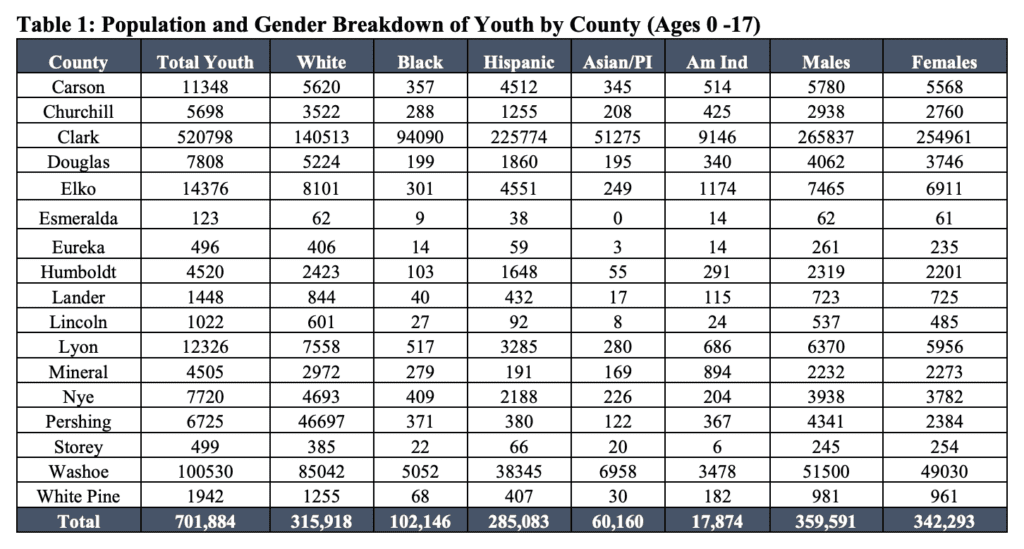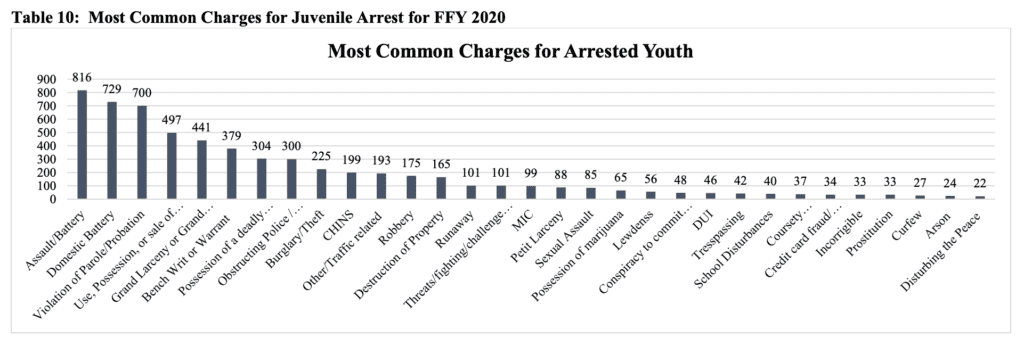Las Vegas Juvenile Crime Attorney
Related Practice Areas
Other Practice Areas
Contact Us
Juvenile Crime Defense In Las Vegas, NV
Table of Contents
ToggleThe Nevada Juvenile Court System
The Nevada Supreme Court has ruled that traditional statutory and criminal procedural rules that apply in adult court do not apply to juvenile court proceedings. In fact, juvenile courts in Nevada do not have jury trials, and matters handled before the juvenile court are not considered criminal in nature. Nevada state legislature declared in 2003 that one of the goals of the juvenile justice system is to promote programs that have missions to prevent children from becoming subject to the court’s jurisdiction. Nevada is also part of the Interstate Compact for Juveniles, which promotes communication and cooperation between participating states when a juvenile offender has left the state of residence.
Although the state of Nevada believes that juvenile courts should provide rehabilitation and positive intervention to prevent future criminal acts, this doesn’t mean that there are no penalties for juvenile crimes. Children who are convicted of a juvenile offense in Las Vegas may be put into juvenile detention facilities, and a child’s life could be significantly altered if found guilty of a juvenile crime. If there is potential to have a child’s crime reduced or dropped altogether, you must seek representation from a Las Vegas juvenile defense lawyer. Don’t let a mistake shape your child’s future, call the Spartacus Law Firm today and learn more about how we can help.
Types Of Juvenile Charges In Las Vegas
There are many different crimes that a juvenile can be charged with in the state of Nevada. However, there are some juvenile offenses that are much more common than others. At the Spartacus Law Firm, our Las Vegas juvenile crime attorney has extensive experience handling these cases and will have the resources and knowledge needed to help you and your child. Below are some of the most common types of delinquent acts or crimes prosecuted in the juvenile courts throughout Clark County:
- Possession of marijuana or drug paraphernalia
- Criminal mischief of graffiti
- Shoplifting or theft
- Trespassing
- Burglary or robbery
- Violation of probation
- Battery or other crimes of violence
- Sexual misconduct with a younger child
- Underage DUI
- Drug crimes
- Violent crimes
- Sex crimes
- Weapons charges
- Vandalism
- Gang-related crimes
Penalties For Juvenile Crimes In Las Vegas
First, it’s important to understand that a juvenile offender who is charged as an adult will be subject to the same criminal process and penalties if convicted, including adult prison. However, penalties are no more lenient for a child charged with a juvenile crime than they would be for an adult charged with the same crime. The specific penalties for a juvenile offense will depend on the crime and circumstances surrounding it. More serious juvenile offenses, and those committed by repeat delinquents, will generally be subjected to stricter consequences. In addition to confinement in juvenile hall or a juvenile correctional facility, your child may also face the following legal consequences, these are also known as dispositional orders:
- Being sent to their home under the custody and supervision of a suitable person
- Being committed to the custody of a licensed public or private institution
- Being permitted to live in a residence without adult supervision under the strict supervision of the court
- Court-ordered work crew community service
- Being ordered to complete a specific program
- Driver’s license suspended for at least 90 days
- Substantial financial fines or restitution to victim
- Required medical or psychological care or referral to counseling
- Required drug and alcohol abuse counseling or treatment
- Commitment to a detention facility
- Commitment to the custody of the Division of Child and Family Services
- Designating that you have been charged with a juvenile crime on college or employment applications
- Letter of apology
- No gang activity
- No contact order with certain people or places
- Participation in classes run by the probation department aimed at developing skills in areas such as victim awareness, family wellness, basic skills, job training or anger management
In the state of Nevada, most juvenile charges are sealed once the child turns 21 years old. However, some of the more serious juvenile offenses may stay on your child’s permanent record until they reach thirty years of age. It goes without saying that a juvenile conviction on your child’s criminal record can be a life-altering moment. There are many different aspects of life that can be negatively impacted including future employment, career, or educational opportunities. In serious juvenile cases where a minor has committed a violent crime or has engaged in repeated delinquent conduct, the child may be certified as an adult, which would result in them being tried in an adult court. Acquiring a skilled juvenile crime attorney in Clark County will provide you and your child with the best opportunity to secure the optimal outcome in your case.

Children Can Be Tried As Adults In Juvenile Crimes
Believe it or not, children are frequently charged as adults for serious crimes, especially in Las Vegas. Rather than facing standard charges in the juvenile justice system, children can be certified as adults in certain circumstances. Below are a few examples of when a child can be tried as an adult for a serious crime:
- A child 13 or older can be charged as an adult for murder or attempted murder
- A child 14 or older can be tried as an adult for most felony offenses
- A child 16 or older will automatically be charged as an adult for murder or attempted murder charges
- A child 16 or older charged with sexual assault or attempted sexual assault must be heard in adult court if the defendant was previously convicted of a charge that would be considered a felony if committed by an adult
Those mentioned above are just a few examples of situations where serious crimes result in adult criminal charges for juvenile offenders, however, there are many other charges that can be enhanced to adult crimes in certain circumstances. Furthermore, the transition to adult court for some juvenile cases will only occur after the prosecutor submits a motion to the court and the court conducts an investigation and hearing before certifying the child to be tried as an adult. For more information about the juvenile process, contact the Spartacus Law Firm to speak with our experienced Las Vegas juvenile defense lawyer.
The Juvenile Certification Process
When Can A Juvenile Be Certified As An Adult In Nevada?
Nevada Juvenile Justice Statistics
State Overview (Federal Fiscal Year (FFY) 2020):
- Youth Population (ages 0 – 17): 701,884
- Juvenile System Referrals: 13,514
- Juvenile Arrests: 6,189
- Juveniles in Secure Detention (County): 3,497
- Juvenile in Secure Corrections (State): 233
- Juveniles Certified as Adults: 38
Recidivism Measures FFY 2020:
- Juvenile Re-Arrest Percentage (12-month lookback): 11.39 %
- Juvenile Re-Adjudication Percentage (12-month lookback): 6.29%
- State Facility Revocation Percentage: 26.32%




Frequently Asked Questions
Can Children Be Charged As Adults In Las Vegas?
- Rape
- Gun crimes
- Murder
- Attempted murder
- The child was at least 14 at the time of the alleged offense, and
- The offense would have been a felony had an adult committed it
How Do I Fight Delinquency Charges?
- Surveillance video
- Eye-witnesses
- Text messages and voicemails
- Medical records
- And more
What Is The Process If My Child Is Arrested?
Is My Child Entitled To An Attorney?
How Are Juveniles Charged In Nevada?
The first step in the juvenile criminal process is that a petition is filed by the District Attorney’s Office alleging that a delinquent act has occurred or a child is in need of supervision. Once the petition has been filed a plea hearing is then set. At the plea hearing, the juvenile must answer the allegations in the petition, the answer can be verbal and some allegations can be admitted, some can be denied, some allegations may be dismissed through negotiations, or all allegations in the petition can be denied.
If allegations in the petition are denied then an adjudicatory hearing is held. This type of hearing is similar to a trial but as previously stated there is no jury. Witnesses are called, evidence can be admitted, witnesses can be confronted through cross-examination, and ultimately the judge will enter dispositional or sentencing orders.
Often times we are able to obtain a resolution and avoid a petition from ever being filed against the juvenile, this is known as an informal resolution. This is the optimal outcome.
What Are The Juvenile Jails In Nevada?
Nevada has several juvenile detention facilities where those charged with a juvenile crime may be sent. Summit View Youth Center (SVYC), located in Las Vegas is Nevada’s single maximum-security juvenile jail and will be home to those who have been charged with severe juvenile crimes. The other juvenile facilities that house those charged with a juvenile crime include the following:
- Caliente Youth Center (CYC) near Panaca
- Nevada Youth Training Center (NYTC) near Elko
- Spring Mountain Youth Camp near Las Vegas
- China Springs Youth Camp in Douglas County
- Western Nevada Regional Youth Center in Lyon County


